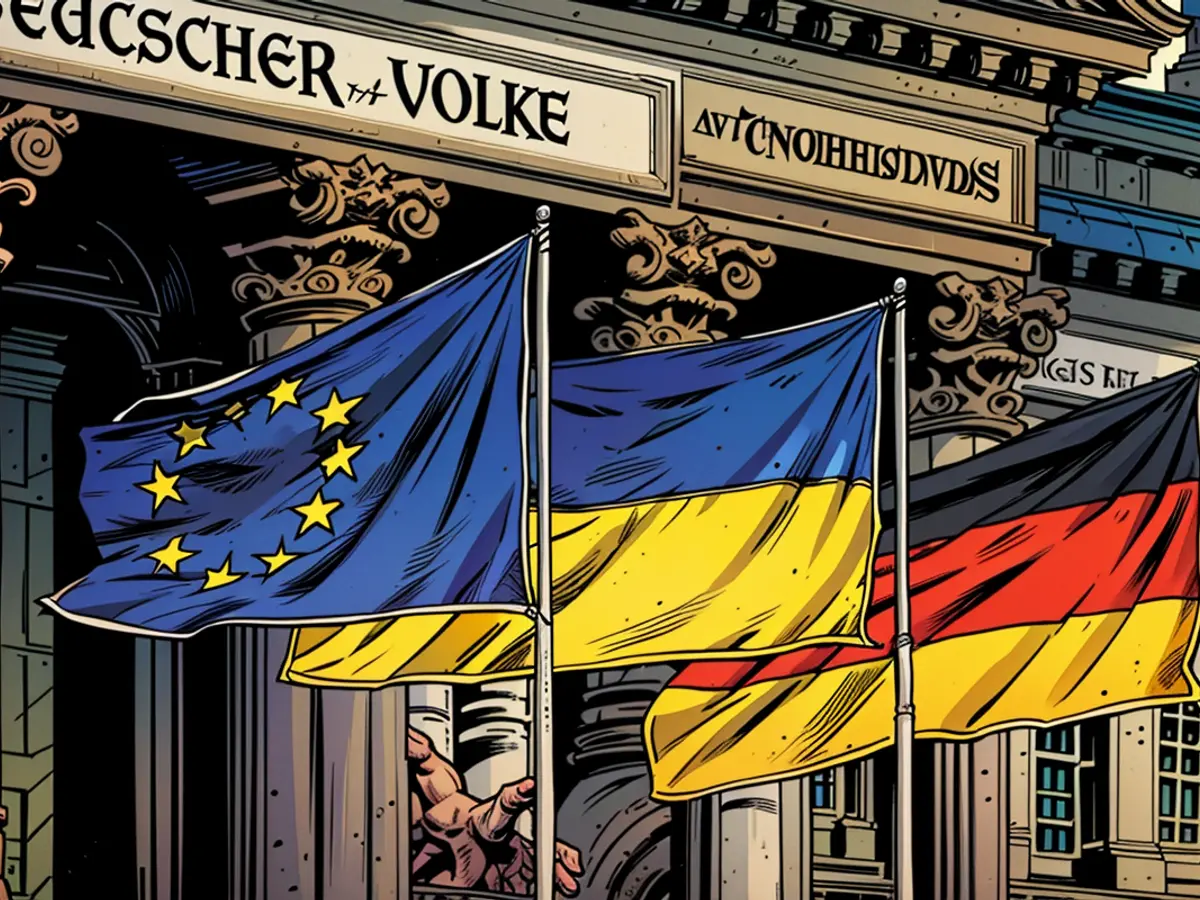The U.S. Administration intends to finance assistance for Ukraine - Ambassador Makeiev expresses concerns
The "Frankfurter Allgemeine Sonntagszeitung" initially brought up the proposed limitation and looked into internal documents from government departments and the Bundestag. As per the "FAS" report, Federal Finance Minister Christian Lindner (FDP) allegedly conveyed this new strategy in a letter to Defense Minister Boris Pistorius (SPD) on August 5th.
In the letter, Lindner reportedly stated that additional support for Ukraine could only be contemplated if it was accounted for in the annual and subsequent budgets, ensuring that the set limits were respected. The delivery of previously sanctioned supplies continues uninterrupted, according to the report, but new requests from the Ministry of Defense should not be authorized in response to the Federal Chancellor Olaf Scholz's (SPD) request. However, the Federal Ministry of Finance contradicted this on Saturday evening, declaring they were prepared to "assess the prospect of supplying additional funds temporarily."
For this, it's essential that the "additional requirements are detailed and verifiable," the Ministry of Finance clarified, in line with all fiscal regulations, enabling approval from the German Bundestag. As of now, no comprehensive report of needs has been submitted, rendering an investigation or decision impossible.
The Ukrainian Ambassador to Germany, Oleksii Makeiev, strongly cautioned the Federal Government against cutting aid to Ukraine. "Reducing military aid to Ukraine jeopardizes Europe's security," he wrote on X. "This is catastrophic and must be averted. The funds are readily available; it's a matter of political determination."
For this fiscal year, approximately seven billion euros worth of funds for Ukraine have already been allocated. The proposed limit for the succeeding year is three billion euros. From 2025, the federal government's plan envisions financing Ukraine's aid from a new international fund amounting to 50 billion euros, instead of the federal budget.
In relation to this, frozen Russian assets are intended to support Ukraine, distinguished as "windfall profits," as a Berlin government spokeswoman confirmed when requested by AFP.
The budgetary guidelines reportedly instigated disagreements within the federal government. According to "FAS" information, Minister Pistorius supposedly compiled a detailed agenda for the requested approximately four billion euros in additional Ukraine aid for this year. However, he withheld submission after an intervention by the Chancellery.
The Green defense expert Sara Nanni criticized Lindner's limitation on aid as "unnecessary and detrimental." The finance minister should "promptly withdraw it," Nanni advised the RND newspapers.
Sharp criticism of the federal government's policy was voiced by the Union. "One must be concerned that the freezing of Ukraine aid serves the convenience of large parts of the SPD," said Union faction deputy Johann Wadephul (CDU) to the RND newspapers. "Ukraine and local arms manufacturers require certainty and reliability. That's no longer available with the traffic light coalition."
Leading economists also criticized the plans. "I'm somewhat taken aback that the coalition's peace appears to be maintained at Ukraine and European security's expense," said Moritz Schularick, president of the Kiel Institute for the World Economy, to the "FAZ" on Monday. The chairwoman of the expert council, Monika Schnitzer, characterized this as a "fatal signal" to Russia. The reduction could lead to subsequent costs that are significantly higher than the current savings - for example, through additional Ukrainian refugees.
The "Frankfurter Allgemeine Sonntagszeitung" (FAS) reported that Federal Finance Minister Christian Lindner conveyed a new strategy for additional aid to Ukraine in a letter to Defense Minister Boris Pistorius, stating that it should be budgeted for effectively. The FAS also mentioned that the Ukrainian Ambassador to Germany, Oleksii Makeiev, strongly cautioned against cutting aid to Ukraine.







